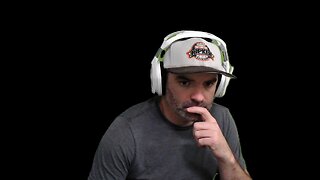Premium Only Content

The WASP (Texas Radio and the Big Beat) The Doors
L.A. Woman is the sixth studio album by the American rock band the Doors, released on April 19, 1971, by Elektra Records. It is the last to feature lead singer Jim Morrison during his lifetime, due to his sudden death exactly two months and two weeks following the album's release. Even more so than its predecessors, the album is heavily influenced by blues. It was recorded without record producer Paul A. Rothchild after he quit the band over a perceived lack of quality in their studio performances. Subsequently, the band co-produced the album with longtime sound engineer Bruce Botnick.
Critics including Richie Unterberger and David Quantick have called L.A. Woman one of the Doors' best albums, citing Morrison's vocal performance and the band's stripped-down return to their blues-rock roots.
The Doors had achieved commercial and critical success by 1969, but for much of that year they were blacklisted from radio playlists and their concert bookings dwindled after singer Jim Morrison had been charged with profanity and indecent exposure at a concert in Miami, Florida. Morrison had mentioned leaving the group at the end of 1968, only to be convinced by keyboardist Ray Manzarek to stay on another six months. On September 20, 1970, Morrison was convicted for the Miami incident. In a 1971 interview with Ben Fong-Torres, Morrison said of Miami, "I think subconsciously I was trying to get across in that concert, I was trying to reduce it to absurdity. And it worked too well."
Record producer Paul A. Rothchild, who worked with the band on their first five albums, attended the early sessions but quit following friction with the band. This included his dissatisfaction with the song "Love Her Madly", which "drove [him] out of the studio." He felt that recording the composition was a step backwards artistically, calling it "cocktail music." Rothchild has denied a popular rumor that claimed he directed the remark toward "Riders on the Storm", explaining that he thought that song and "L.A. Woman" were "excellent in rehearsal". He maintains that his cocktail music comment was said to "make [the group] angry enough to do something good." Rothchild was frustrated that the group was slow in developing new material, especially as the band contained three songwriters. He was unable to persuade Morrison to consistently attend rehearsals. As Bruce Botnick revealed in the book Love Becomes a Funeral Pyre, another issue that led to Rothchild's leaving was the emotional devastation he felt at the death of Janis Joplin, having worked with her on Pearl. Rothchild left before any master takes were complete, recommending that the Doors co-produce L.A. Woman with Botnick, the sound engineer who had worked with Rothchild on the band's previous recordings.
The group and Botnick organized a makeshift recording studio at their private rehearsal space, the Doors' Workshop, a two-story building at 8512 Santa Monica Boulevard. They could then record in a more comfortable and relaxed setting while avoiding the expenses of a professional studio. A mixing console previously owned by Elektra was installed upstairs in the Workshop, while studio monitors, microphones, and keyboards were set up downstairs. To compensate for the lack of an isolated vocal booth, Morrison recorded in the bathroom doorway, singing into the same microphone used on the Doors' final tour. According to Botnick, Morrison was easy to work with and spent long hours in the studio with little consumption of alcohol.
For recording, Elvis Presley's bassist Jerry Scheff and rhythm guitarist Marc Benno were brought in to provide additional backing. Densmore characterized Scheff as "an in-the-pocket man" for his steady supportive role, and praised how Scheff "allowed me to communicate rhythmically with Morrison, and he slowed Ray down, when his right hand on the keyboards got too darn fast". By all accounts, Morrison – a huge Presley fan – was excited by Scheff's participation. In addition, Benno was asked to participate as a result of his recent notoriety from working with Leon Russell. The songs were completed in a few takes on a professional-quality 8-track recorder, and the album was finished in six days. Mixing was completed at Poppi studios in West Hollywood, by which time Morrison had moved to Paris, France.
The band began recording without much material and needed to compose songs on the spot, either by jamming or talking through ideas. In a 1994 interview, guitarist Robby Krieger stated, "Rothchild was gone, which is one reason why we had so much fun. The warden was gone." Despite its troubled beginnings, L.A. Woman contains some of the Doors' most critically acclaimed songs, as well as some of their most blues-oriented.
Three months after release, on July 3, Morrison was found dead. There had been discussions between Morrison and the others for future recording after he returned from Paris.
-
 LIVE
LIVE
Dr Disrespect
6 hours ago🔴LIVE - DR DISRESPECT - TRIPLE THREAT CHALLENGE - RIVALS, PUBG, WARZONE
4,044 watching -
 1:37:26
1:37:26
Redacted News
3 hours agoBREAKING! Trump Effect is Real Justin Trudeau Resigns in Disgrace
86.7K97 -
 49:08
49:08
Kimberly Guilfoyle
3 hours agoEnding Injustice and the 100 Day Agenda, Live with Joseph McBride and Mark Lucas | Ep. 186
18.2K6 -
 56:29
56:29
Candace Show Podcast
3 hours agoYes, Internet. I Am Pregnant...AGAIN. | Candace Ep 126
50.6K122 -
 LIVE
LIVE
The Amber May Show
6 hours agoU.K. Political Prisoner Tommy Robinson | Cyber Truck Explosion | Soros & Clinton Medal Of Freedom
77 watching -
 4:58
4:58
America First Policy Institute
8 hours agoEmpowering Parents: Erika Donalds Joins AFPI to Champion School Choice & Florida Leadership
53 -
 3:11:06
3:11:06
Tate Speech by Andrew Tate
9 hours agoEMERGENCY MEETING EPISODE 100 - TATE FOR PRIME MINISTER
172K197 -
 18:52
18:52
VSiNLive
19 days agoFrom Las Vegas Dealer to Professional Gambler: How "Miss Brown" Won MILLIONS While Card Counting
31K5 -
 35:03
35:03
Stephen Gardner
3 hours ago🔥JUST NOW: Trump JUST SHOCKED Congress with new DEMAND!!
55.2K45 -

checkmate7_7
4 hours ago $0.53 earnedStarting over. | !GUILDED
24.3K2